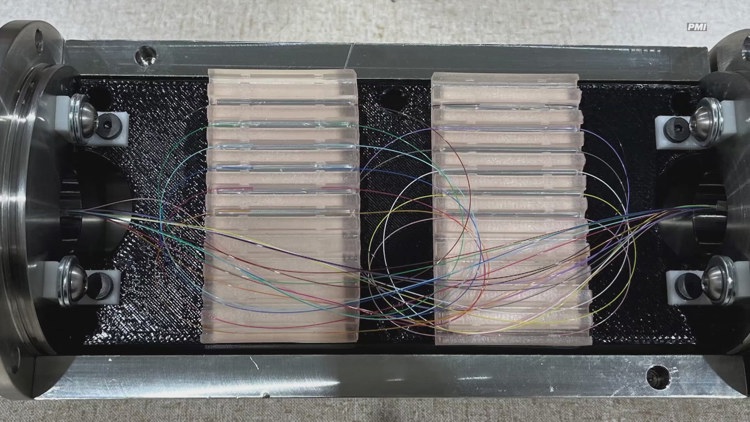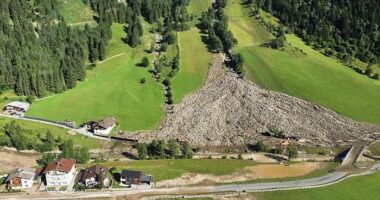
There are areas in the United States that still lack internet infrastructure. A company in Brooklyn Heights is now aiming to address this issue by establishing connections.
Located in Brooklyn Heights, Ohio, PMI Underwater Cable Solutions specializes in handling large projects. The company’s factory floor is equipped with massive cable spools that can measure up to a mile in length. PMI manufactures, tests, and deploys cable connections for various sectors, including the Navy and defense, oil and gas, as well as ocean exploration.
“We’re really good at coming up with solutions to people’s challenges,” said Bob Centa, the President and CEO of PMI.
Now, they are venturing into a new field: telecommunications, driven by a customer’s unique request.
According to Centa, PMI’s representative, there was a specific demand in Alaska for providing fiber optic and internet services to underserved communities. He pointed out that a significant portion of Alaska currently lacks access to the internet.
The American Fiber Optic Project is bringing high-speed internet to Alaska. That means cable must be strung in the Yukon River, requiring a connection rugged enough to withstand the elements.
“This thing is going to go through frozen ice water and it’s going to have mud, and then it’s going to defrost and it’s going to be nice in the summer,” explained PMI Mechanical Engineer Michelle Kane. “And they have to worry about boats going down the Yukon River, so there’s potential that it’s going to get picked up and dragged.”
Michele Kane was the lead on inventing a fiber optic splice kit enclosure for the job. It took three months to create it and another three months to get it into production, which was just in time.
“We were on a tight timeline. We had to get everything shipped out by, the end of December so that they could, start putting everything together, and they had to deploy the cable, in the summer before the river froze over,” said Rich Sinkovic, a sales engineer for PMI.
A simple design, but complex to engineer. The enclosure allows cables, comprised of up to 48 fiber cables, each thinner than a human hair, to be connected in a 3D-printed tray. The splice kit cavity is then filled with a solid polyurethane or oil to withstand water pressure and ensure a strong connection. For PMI, creating a new product is rewarding, especially when it can benefit so many people.
“I think about the fact that bringing fiber to those areas, you think about online classes, they can take different things that they could do within their community,” said Kane.
“We’re thrilled to have developed a new product. It’s really hard in any business, in any industry, to develop new products. And our team did a great job of doing that,” Centa said.
Success in Alaska is now bringing more business to PMI’s door.
“We’ve started to receive more inquiries from other potential customers out there who have caught wind of the work that we’ve done and are looking at solutions to their challenges, as well,” said Centra.

















